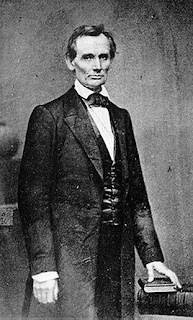The Christmas season is behind us, and it appears the Kindle and iPad were two popular gifts. That makes us writers happy, because people have to fill all those devices with content. (My best Kindle version sales date was December 27.) Since I have owned four Kindles and my wife uses an iPad, I thought a consumer comparison might be useful to the seven or eight people who haven't acquired one or the other yet.
First, my wife and I love our gadgets, and neither of us is willing to trade. Buying a Kindle or iPad is not a lifestyle choice. It's a amplification of an existing lifestyle.
I'm a writer and a heavy reader. I'm almost always reading at least three books at the same time, especially when I'm in research mode. I read text-heavy narrative non-fiction and novels. I can get lost in my Kindle for hours. The only game I play is Spider Solitaire on my laptop. I travel a lot, so subscribing to my newspaper on the Kindle means my paper is always there to enjoy with my first cup of coffee. Last, I use a laptop for writing, and almost always have mine within reach. The Kindle is perfect for me. It's light to carry along with my laptop, holds an entire library, and is easy to handle and navigate. With the search, highlight and note capabilities, it's also the best research tool invented since the Internet. (I still trust history books more than most websites.)
My wife is visual. She loves the graphics, color, and touch features of the iPad. We make family movies together with iMovie on our desktop Mac. She is also an excellent photographer. I love carrying around a library on a device that can almost fit in my hip pocket, while she loves carrying around all her movies and photographs. (Don't get caught sitting next to her on a long plane ride.) She'll search the web for entertainment, and loves the process of exploration. I go to the web with a purpose, and get frustrated when I can't immediately find what I want. She is a big game player and moves to different game right after a yelp of victory. My wife still prefers to read her books in hardcover printed form, but will read an occasional book on her iPad, especially if I've raved about something I've read on my Kindle. She tends to pick up her iPad and use it for an hour at the most before she bounces off the couch to do something in the real world.
We both love our respective machines because they fit our personalities and lifestyles. Someday they may merge, but I don't think so. I predict they will each just keep getting better at providing a service to their constituencies. I've owned all three versions of the Kindle, and each has been better—that is better for me in what I am looking for in a companion device. Despite these improvements, my wife was never tempted to get her own Kindle, but immediately went out to buy an iPad. To each, his own makes for a great world.






.jpg)











.jpg)




